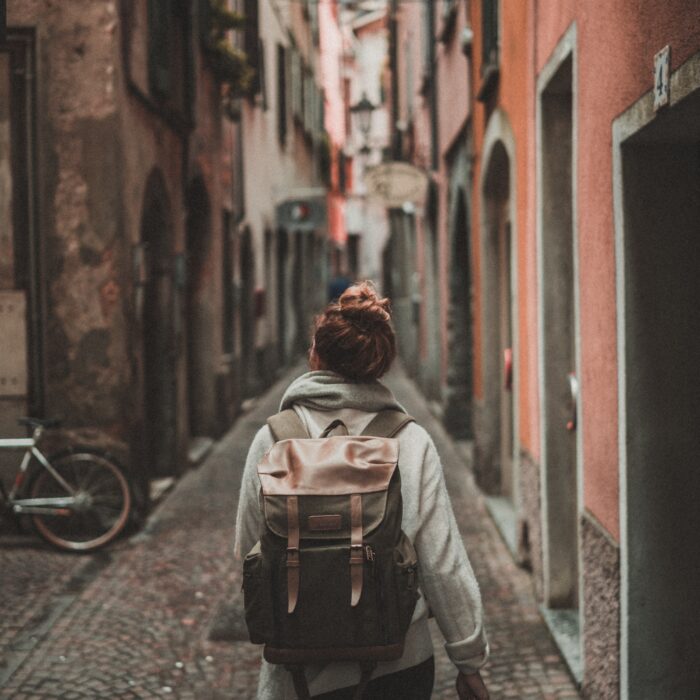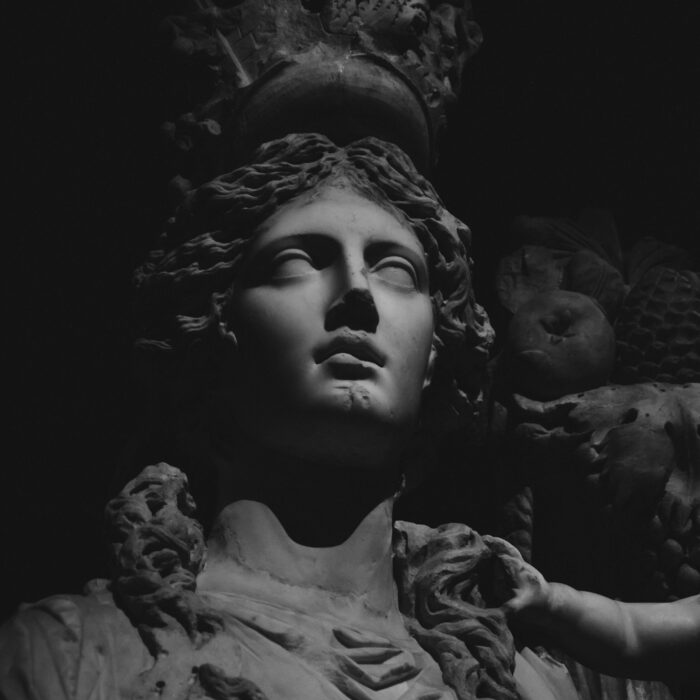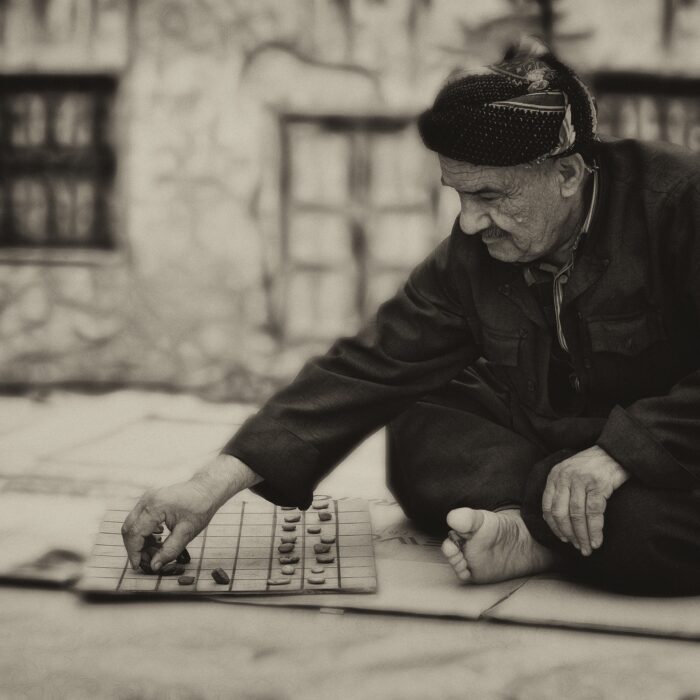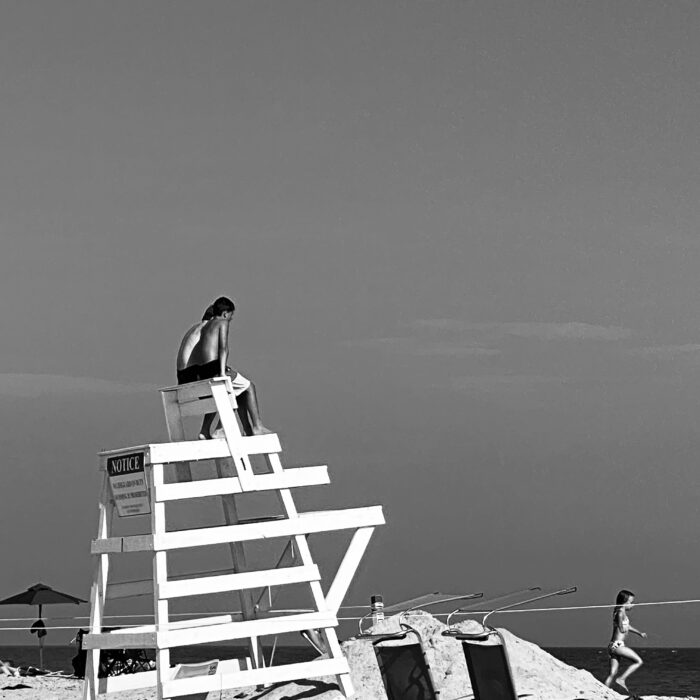You have no items in your cart. Want to get some nice things?
Go shopping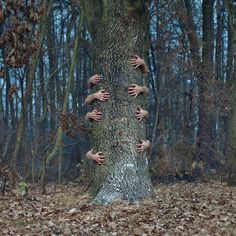 Though most of us loved our parents, we could not help but doubt them and suspect their motives and methods. Undoubtedly we were ignorant, but we knew we were ignorant, we knew that there were truths to be learned and that our parents stood in the way, their eyes ever watchful for signs that we were close to uncovering hidden knowledge or learning the secrets of their laws. If we were not so young it might have looked like cultish behaviour, large groups of believers gathering in secret dens at appointed hours to discuss our liberation, but we could never agree on a plan of action, much less a creed or a manifesto. The adults were the problem, this much we agreed, and without any idea of what shape the truth took, where it was secreted, or what revelations it contained, the only solution anyone could conceive of was terminal; a world entirely our own, free of adults.
Though most of us loved our parents, we could not help but doubt them and suspect their motives and methods. Undoubtedly we were ignorant, but we knew we were ignorant, we knew that there were truths to be learned and that our parents stood in the way, their eyes ever watchful for signs that we were close to uncovering hidden knowledge or learning the secrets of their laws. If we were not so young it might have looked like cultish behaviour, large groups of believers gathering in secret dens at appointed hours to discuss our liberation, but we could never agree on a plan of action, much less a creed or a manifesto. The adults were the problem, this much we agreed, and without any idea of what shape the truth took, where it was secreted, or what revelations it contained, the only solution anyone could conceive of was terminal; a world entirely our own, free of adults.
Some of the more fervent acolytes proselytised for this permanent transition, such was their faith in the emancipatory capabilities of the world without adults, though the means for attaining such a world were too disturbing to allow their theories to flower into anything more than a marginal concern. Most of us hoped for a temporary metamorphosis, an early spring in which the new possibilities would briefly bloom before the intolerant winter of our parents fought back and we were forced to return to the comfort of their homes, the warmth of their fires, whilst the harsh cold outside murdered our hopes and visions with all their attendant responsibilities. This was, after all, what the agitators could never understand: much as we desired the truth, we were also fearful of the demands that truth would place upon us.
I was certain that the answer lay in the night time. It was the dark hours that bewitched my imagination, the hours that were forbidden to me and over which my parents stood guard. Daylight held no mysteries, I knew it inside out, it was pure structure, the architecture of tedium. This was the time that had been designated me by the adults and I felt the limits of this space heavily, being able to navigate through it only in ways that had been predetermined. Though my knowledge of the night was meagre, I imagined it to be the time of chaos; any time in which I was forbidden was a time in which no plans had been made for me.
There were two things that prevented my access to the night, the first being my parents who insisted I observed the strictest law of all, a law that was non-negotiable and to which my parents appealed as though they themselves were powerless in front of it: bedtime. To me it was an infuriating and incomprehensible tradition, one against which I railed with deft arguments, desperate pleas, wily bargains, and sometimes unadulterated rage.
The other thing preventing my access to the night was my physical inability to ration my energy throughout the day so that I was not already falling asleep by bedtime. Daytime itself was a protective measure against unauthorised night-time interlopers and I was never capable of successfully navigating the challenges of the day to gain access to that other world.
Eventually the summer holidays came and our wishes were fulfilled. The heat and light of the sun teased reluctant flowers into bloom and a new cornucopia was made manifest, petals that were shaped and coloured like none we had ever seen before suddenly proliferated and emitted soporific scents that seemed only to affect the adults who lapsed into the prolific dreams of perpetual sleep. Thus began the longest night and a prolonged period of liberation for us, the dark’s new initiates.
We awoke to an inverse sun. I watched my unconscious parents breathing deeply, heavily, as though suffering. What did they know of sleep? I had rarely seen them in this state of vulnerability and had always thought of them as insomniacs. The hours passed, they still did not stir and the day did not return.
At first with trepidation then with delight we gorged ourselves on the pleasures that had always been kept from us. The world of the children seemed to be a place of unlimited food and games. There was no school, there were no chores, there was only the pleasure of having removed all of our limits.
Strangely, we were no longer concerned with the truths that had previously driven us and with the structure of the day having been removed we became uncomfortably aware of the limits of our imaginations. New inventions were uncommon and instead we replicated the things that we knew, making them larger and larger, become artists of gigantism as we lacked the creativity to produce anything different.
The playing fields were the most grotesquely affected, the psychic battlegrounds of the most competitive of our number, each only capable of expressing the idea that they required more space to accomplish the sporting feats of their desires. It took me days to cross the football pitch; from time-to-time I would encounter a lonely ball-juggler or an unfortunate striker, isolated from the rest of his team and captured by a pack of defenders, immune to the faint hints of the referee’s whistle from beyond the hills in the distance, and removing from the folds of their clothing cruel weapons and instruments of torture.
Mary’s cat, Squiggles, had died earlier in the year, and so upset had she been that her parents had taken her out of school for a week while she recovered. After leaving the playing fields and returning to the street that lead to the industrial estate in one direction and the school in the other, I found that there had been some mistake and Squiggles was alive and happy, rolling around on his back on the floor. I didn’t even need to catch him and pick him up as he was excited to see me, believing that I had come to rescue him and take him back to Mary, or so I imagined. As I walked along past the school and to the park where Mary and her friends always played he followed obediently behind.
At the park, however, I discovered several other Squiggleses, all lolling around in a state of bliss, waiting for something or someone, or so it seemed. I continued past the play area which appeared to be abandoned, though I knew it could not be. The swings moved backwards and forwards, though no one was sat upon them and the air was completely still. The seesaw rocked backwards and forwards as though unseen weight were being shifted from one side to the other.
Most disturbing was the slide, which remained completely motionless and stationary whilst giving the impression of perpetual downward momentum, as though some unseen child were trapped in the eternal descent of an infinitely elongated slide, always at the top, always at the bottom and always at every point in between, but without ever falling off, without ever bringing an end to the interminable and excruciating fun.
I hurried onwards, Squiggles following along behind, afraid that if I stared for too long I would be sucked in to the vortex of the play area and would be forced to remain by whatever terrible spirits lingered there. If anything, though, I was even more horrified by what awaited me around the corner under the shadows of the trees that marked the edges of the picnic area.
Hundreds of Squiggleses were pouncing, crawling and fighting over the bones of dozens of children, whilst a much larger Squiggles, only a little smaller than a house, gnawed idly on a skull.
Mary was lounging on his back, a crown on her head and robe of indeterminate materials wrapped around her and she watched on in delight as she saw me approach, followed by my Squiggles.
‘You’ve found him!’ she called in delight. ‘You’ve found your Squiggles! There’s a Squiggles for everyone, look after him!’
‘Don’t you want him back?’ I asked, to which her countenance darkened and the cat suddenly became alert, looking at me and licking his lips.
‘Are you trying to get rid of your Squiggles?’ she asked, her voice no longer happily sing-song, but threateningly tuneless. ‘There’s a Squiggles for everyone.’
I looked down at the Squiggles I had brought with me, and his expression had become more threatening also at the prospect of being left here, another abandoned cat. He was prepared to attack me and pluck out my eyes, so that I could not run away from Mary and the giant Squiggles. I realised that my only escape was to love him and to allow him to spend the rest of his life with me. Though I was afraid, I knelt down to stroke him and play with him, and this seemed to please Mary and the many hundreds of Squiggleses, including my own.
For days and weeks I gave all of my attention to my Squiggles, attempting to convince him that I loved him and that his suspicions about what had happened at the park were only suspicions. On one occasion his jealousy led him to scratch out at me, leaving a nasty gash on my leg. I stood up immediately and turned to leave. As sharp as the pain was, this was not my only motivation for leaving. In truth I despised him and wished more than anything that he would fall into the river and drown. As I was about to leave, though, I saw just a little way down the street, two more Squiggleses watching intently, and a third Squiggles perched on a wall, ready to run and report everything to Mary.
I envied the others who had managed to survive without finding their Squiggles and had not yet encountered the wrath of Mary. At least, though, Mary was happy, most of the rest of us were deeply unhappy and incapable of finding anything to do to fill the time which had grown impossibly large, just like everything else.
Boredom took some of our companions and they joined their parents in sleep. The rest of us, though were either unwilling or incapable of giving in to sleep, but time feasted on our boredom, growing morbidly obese on the tedium our minds could not digest. Seconds became unmanageable, their sides too long and too wide for the span of our arms, whilst the weight of minutes caused them to sink into the mud where they stood resolute and immovable. Hours stretched into the distance, miles, leagues, hectares – we didn’t have the language to measure them. The night itself was too large for the human mind to approach.
In the world of pleasure, the aspirations of others were often dangerous, but even avoiding the children with the more exotic appetites was no guarantee of survival as we learnt very well that desire consumes the desirer as well as the desired.
A friend of mine died gorging on the chocolates that had previously been denied him. We discovered him by the river, his body swollen and misshapen as a result of countless internal ruptures and a trickle of brownish-red fluid had fallen from his mouth and down his chin, as though the sugary acid of his favourite treats had dissolved his insides and he was now nothing more than melted chocolate in a bag of flesh.
Vanessa was the most talented of all the children we knew because she could play four instruments. It was the violin that she loved above all others. She was not satisfied by being the best violinist in the class, but wanted to be the best in the whole school, the whole city and devoted the entire night to playing the violin. With every second that passed we could see her improving, becoming one with her instrument, until finally in the blur her fingers became indistinguishable from the violin that they caressed. We marvelled at the intensity of her playing, until soon, with horror, we realised that she had not become one with the violin at all, but rather the violin had assimilated itself into her. The reversal was an horrific abomination that we could neither turn away from nor permit ourselves to remove from our memories. Player became played, and the played became the player; Vanessa, stretched out on the rack of the violin, its strings scything through her as she emitted a cacophonous symphony of screams and sighs.
Eventually what little we had been capable of imagining tapered out and the bloated, swollen city settled down into what looked like it’s natural form, free from the mutilations our minds had inflicted. Squiggles grew smaller and smaller, his admonishments fainter and fainter, until one day I could not even see him anymore.
The city’s realignment to normality was so extreme that it quickly became unrecognisable. Everything appeared deflated and, if looked at from out of the corner of the eye, completely flat. Colours vanished, complexity became simplicity, monotony reigned. Everything was explainable now, we understood everything, though our knowledge and learning had not increased. Instead the city had reduced itself to the proportions of what we knew so that nothing was unexpected or surprising.
As our imaginations exhausted themselves, the world around us began to thrum with imagination. This was chaos, but it was not the chaos I had expected; instead of an absence of law, rule and structure, we were suffocating in the soul of structure, the air was alive with the law. I was not afraid that by breaking the rules of my parents I would be punished by the hideous deaths they had sought to prevent, what frightened me was that the rules had nothing to do with me and had instead been employed to place limits on this malicious imagination that seethed through the city.
The shape of this previously unknown power started to become clear when our parents rose from their beds. They did not awaken, but started moving somnambulically through the motions of their lives, their jobs, their mundane day-to-day tasks. Now it was our turn to observe them and finally we understood something of their lives that disturbed and unsettled us. Whilst we had imagined ourselves to be prisoners, it was our elders all along who had been slaves. Though omniscient and omnipotent, the power that controlled them was not unseen, like a god, but was rather invisible in its omnipresence. The city would not allow itself to die; it possessed the adults, animating them like hand puppets to the service of its impenetrable desires. We shrank away from the conclusions at which we had arrived: our parents were being devoured alive by an entity we had previously considered benign, if we had even thought of it as an entity at all.
I remembered an occasion, long before we had even conceived of trying to gain access to the night’s secrets, when I had become aware of the conspiracy, the cryptic words whispered and only partly heard, the names which would not conjure a face or a voice in my mind, the ones of whom we could not speak, the blankets of silence our parents skilfully placed to conceal from us even the idea of a truth beyond what we could see. And yet we had been able to see it all along; the trick they had played was to hide the truth by revealing it: there were not enough children.
Whole nations of children were vanishing, picked off one-by-one by the acolytes of some unnameable beast, the seas ran thick with blood. All around me, if I had only been able to see it, were absences, holes, nothingnesses were children ought to have been. Once I understood, I could not help but weep for the lost, dead and dying children, and my parents’ complicity in their demise. No one was innocent, I realised, all the adults were complicit in the mass slaughter, for all of the adults were the servants of the wicked beast.
The beast, the shadow in the night, the darkness under the bed, the lurker in the cupboard, the multitudinous mouths, the grasping arms and legs, the horror, the horror, all were nothing, mere shadows to distract me from the monster who could slip in and out of my mind at will, take control of my body, be my body; the city. We were not hunted; we had been prisoners of the city all along.
Though we were prisoners on one side of the divide, it was impossible to imagine what separated us from the children on the other side of the divide, the ones who were vanished, that the city demanded were unacknowledged. They could not look any different from us, or be any different from us, they were, after all, we were certain, children, it was impossible to believe they could differ from us too greatly. The only explanation that made sense was that they were the children we had been warned not to be; they were the children we might have been if we had not followed our parents’ instructions and behaved. They had been unable to control their curiosities and desires and had been dissolved into the city. The divide was a thin one, we realised, and the difference between us and them came down to choices that could hardly be described as choices, for they had been made before we had even had time to process them in our minds.
We were no longer certain of the provenance of our desires, no longer certain that it was us breathing life into our aspirations, and not our aspirations growing like tendrils from the cracks in the pavement, threatening to strangle us. Seeking to escape, I navigated a path through streets I half-remembered from walks with my mother or from trips in the car with my grandparents until I reached the boundaries of my geographical knowledge of the city. Then I walked with increased determination through infinite streets that endlessly folded in on themselves; a jigsaw city that never ended, but constantly reconfigured the same, limited components into new neighbourhoods and districts each with armies of adults toiling mindlessly in the service of the city, until finally exhaustion worked its way through my body and I turned one final corner to find myself back where I had started on the street where I lived.
Though the final stage of the night was the most terrifying, it was not the worst part of the whole episode. When it came to the end we at least knew the nature of the problem, knew what we needed to do to escape and felt certain that all it required was to wake up our parents. After all, this was not a city night of our making, we were trapped in the collective dream fantasy of the city’s adults. The worst part of the experience came after our parents had woken up and everything had returned to normal, because even though we had been reclaimed by the day, we knew that the dream was not over; the dream had been there all along, it continued to be there and even after our parents and the other adults had died the dream would continue to be dreamed by us and by our children. Though we had been freed from the violence of its naked form, there was something more chilling in the knowledge that it persisted, unseen, clothed in bricks and tarmac, breathing and thinking in the parts of our mind that were less our own and belonged more to the city. How else could all the disparate elements of the city hold without some unseen bond fixing everything in place?
We experienced the final vision of the night as horror, but looking back I cannot help but feel that what we were witness to was a display of vulnerability. From the cracks in the pavements and the gaps in the walls thick, hairy stems grew long and winding towards the sky, as though reaching for the inverted sun above us. I remember in particular reaching out to touch one but it recoiled from me as though it were sentient and fearful. Curiosity overcame my sense of revulsion and I pinned it to the ground before taking a penknife and patiently dissecting it. Blood spurted from the wound, trickling down the street. Still I cut, peeling back the sickly flesh to reveal a hard, white bone at the centre of the stem.
Flesh spread rapidly through the city. If we leaned too heavily on a wall or scuffed our shoes on the pavement we left behind a mark or an impression or, in some more developed cases, a bruise or a scratch. We returned to the place where I had carried out my experimentation on the arm-stem and followed the flow of blood down the street and along the next road on the way to the industrial estate. There we discovered a huge tree, three times the size of anything in the local park and immeasurably more astonishing. A thick, hairy trunk, four feet high, groaned under the weight of a dense, bushy mass of groping human arms and legs. It seemed to have noticed our arrival and the uncountable limbs reached out towards us making visibly desperate yet ultimately futile attempts to grab us.
This, clearly, was not the malformed fruit of the city’s humanity, but its congealed waste products, its failures and forgotten, unwanted scraps. I, at least, felt a kinship to the human-tree, recognising that this was the mangled form of our discarded brothers and sisters, the ones who had never known the protection of the laws. Our obedience had always been guaranteed by tales of other children, the ones who coveted our place or the ones who refused to observe the structures that guaranteed our safety. This then was the fate of those who could find no place in the city and even today I dream of the tree and wake up afraid that my belief in the city is not sufficient to save me. In the struggle of the day there appears to be little tangible difference between belief and non-belief, anyway.

About David Simpson
David studied literature in Edinburgh and Manchester before teaching English in Athens for two years. He mostly writes short stories, but is currently working on a novel. After discovering a passion for European fiction, he had a better understanding of what he would like to achieve with his writing. He has been failing to reach those standards ever since.

